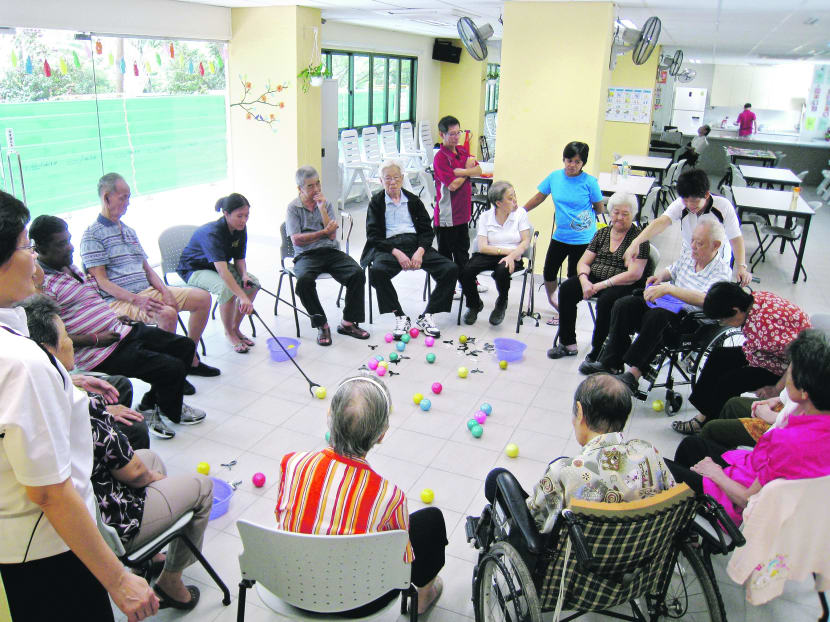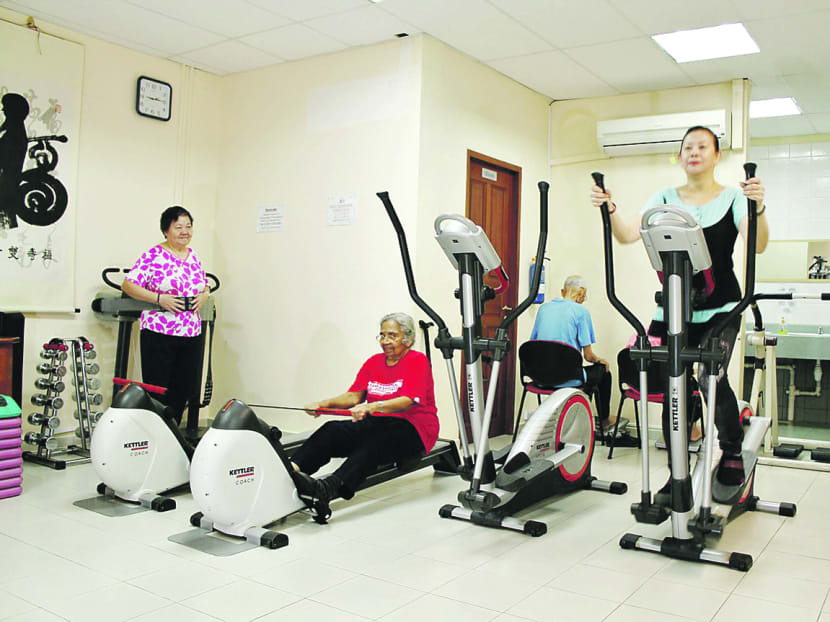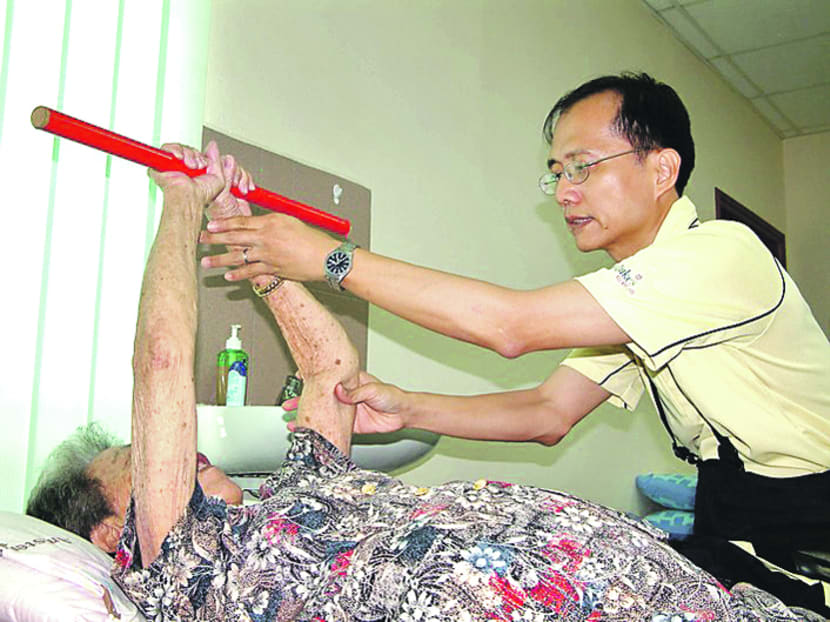Getting better and staying healthy, together
SINGAPORE — Since last year, Mr Swee Yit Hwa, who was unable to walk on his own without help, has been making his way to St Luke’s ElderCare (SLEC) Telok Blangah Centre with his wife every day, without fail.



SINGAPORE — Since last year, Mr Swee Yit Hwa, who was unable to walk on his own without help, has been making his way to St Luke’s ElderCare (SLEC) Telok Blangah Centre with his wife every day, without fail.
“Previously, I had no strength in my legs and needed people to support me in order to walk,” said the 77-year-old, who was recommended by his doctor to start active day rehabilitation and social day care at the centre in February last year to help strengthen his weakening legs. With the help of trained therapists who provide customised care for individuals to overcome disabilities, daily exercise and a walking cane, Mr Swee can now move about on his own.
Meanwhile, his wife, 72-year-old Madam Gay Kiah Moy, does not need therapy, but seeing the centre as an escape from boredom at home, she opted for the centre’s day care services. Smiling widely, Mdm Gay addressed the centre’s staff as “my friends” who “take good care of us elderly”.
The centre is one of SLEC’s 12 centres in Singapore providing day programmes for the elderly. Each centre can cater to a variety of needs — from seniors who simply come by to use the gym — which has treadmills and exercise bikes — with friends, to those who choose a structured day care programme with planned activities like arts and group exercise supervised by therapists, to rehabilitation programmes for those who have joint problems or conditions like Parkinson’s disease. Its dementia clients are served in the same environment with non-dementia clients to encourage social interaction, which can help stabilise the former’s condition.
The SLEC has been providing dementia care since 2009, collaborating with Changi General Hospital to train all staff in dementia care through the Community Psycho-Geriatric Programme. It was nominated for several awards at the first Asia Pacific Eldercare Innovation Awards, which were handed out on April 16, winning the Special Recognition ‘Facility’ — Day Care award.
“Activities at the eldercare centres offer great social interaction opportunities which helped the elderly to engage better. Through active social interaction, people engagement and regular exercising at the wellness gym, the elderly do enjoy their daily programme, which makes them less prone to depression and mood swings,” an SLEC spokesperson said.
At the Telok Blangah Centre, Mr Swee and his wife enjoy chatting and having a laugh with other seniors, as they work on brightly hued arts and crafts projects like canvas paintings, which adorn the walls of the centre.
The mood at the centre is upbeat and relaxed, with the seniors free to mingle as they go about their activities, gathering in groups for exercise or playing simple games. There are facilities for exercise and day care to cater to those who are working out and those who are undergoing individual physiotherapy and occupational therapy guided by a therapist.
At the Telok Blangah Centre, a group of seniors come to use the gym for an hour each morning before heading on to the market. Under the centre’s Wellness programme — which has some 3,000 registered members — members can use the gym facilities for S$2.70 a day, or S$30 a month.
The centres also run specific diversional therapy for the elderly with dementia, and SLEC caters to about 300 dementia sufferers, which make up almost 30 per cent of its elderly clients.
Dementia is not a part of normal ageing. Rather, it is a term used to describe progressive degenerative brain disease and does not affect merely memory but can cause depression, anxiety, difficulty performing familiar tasks like cooking, disorientation, and changes in mood and behaviour. Alzheimer’s disease is the most common cause of dementia.
“We believe social integration will enable the elderly to live meaningful, quality lives in the community. Elderly with dementia under our care are able to live normal lives,” said Dr Kenny Tan, SLEC’s Chief Operating Officer.
Elderly with varying degrees of dementia benefit from games such as cross-stitching, which helps with cognitive function, as well as interaction with non-dementia clients. They play such games in groups of four to five for 30 minutes once a week.
Telok Blangah Centre manager Raquel Llorente, 51, said she believes that “not segregating them in groups” allows non-dementia clients to “become leaders” and gain confidence.
“(Dementia clients) get to think too by choosing which games they would like to play,” she added.







